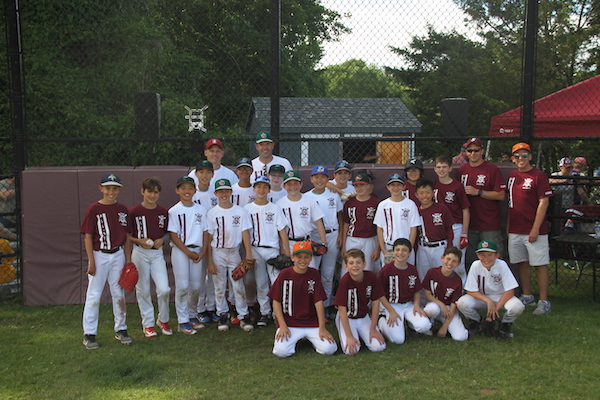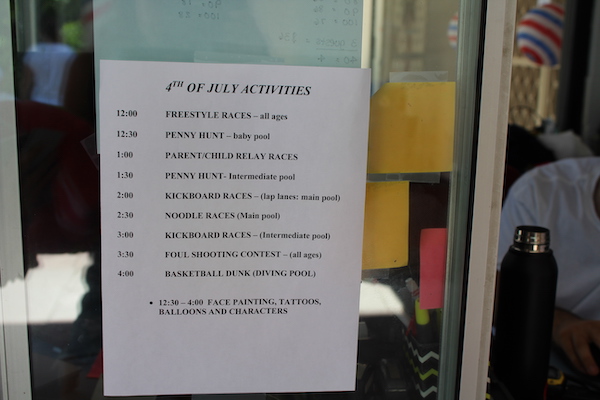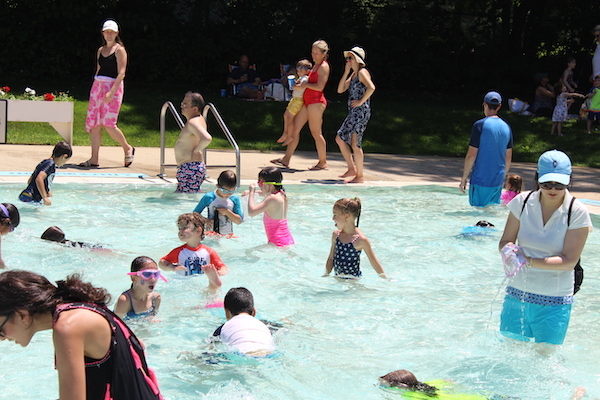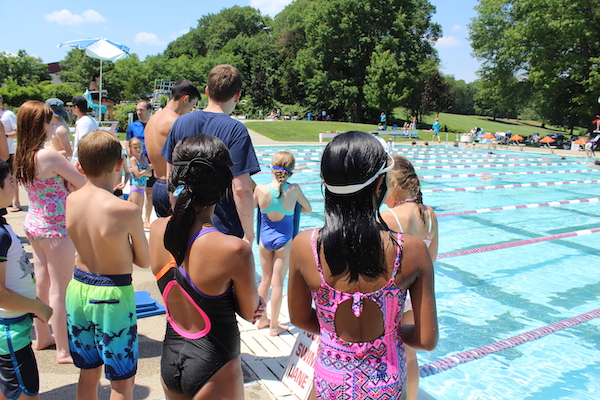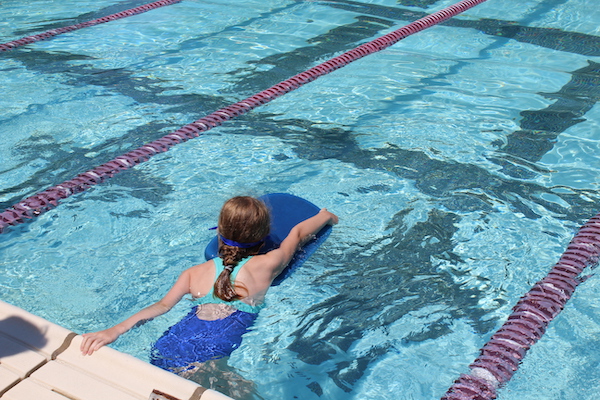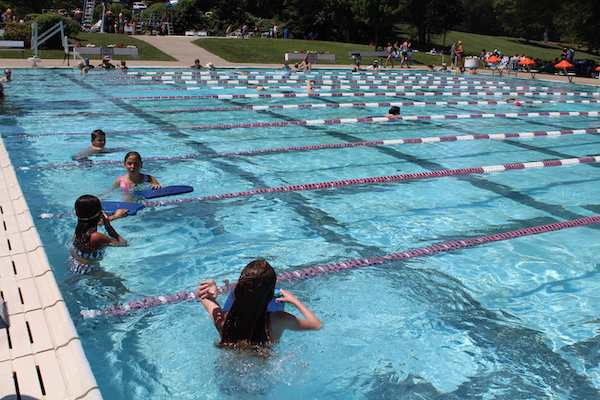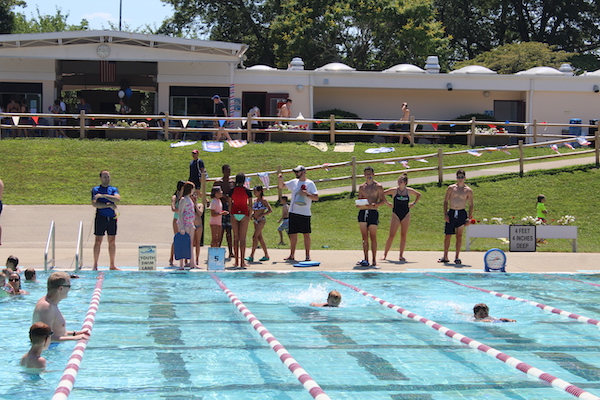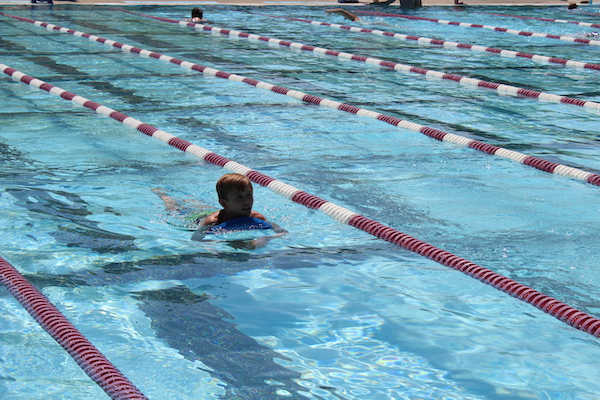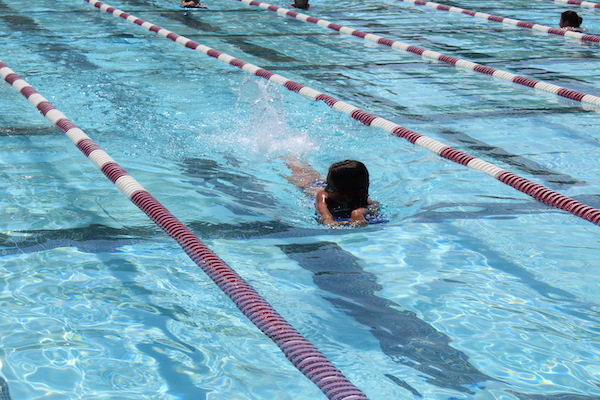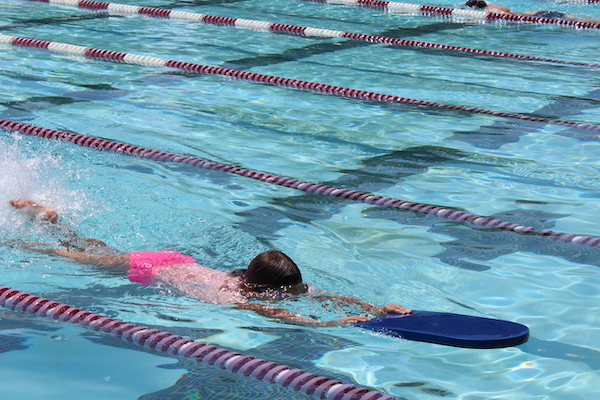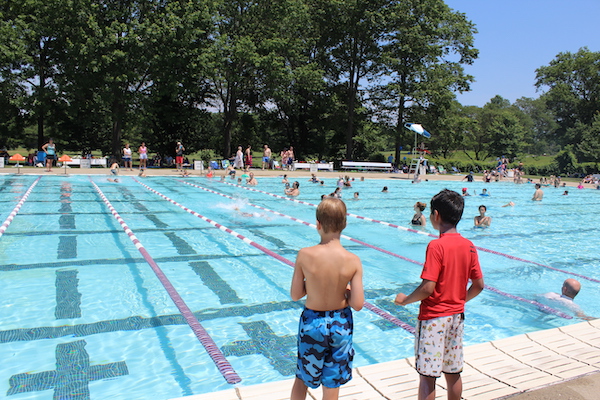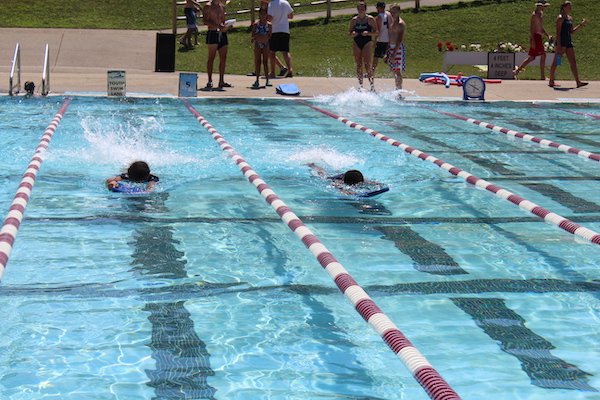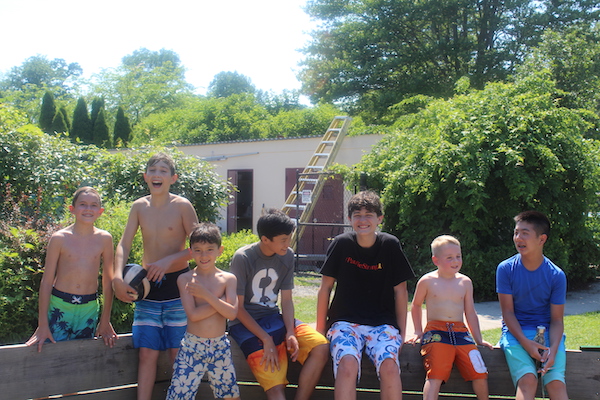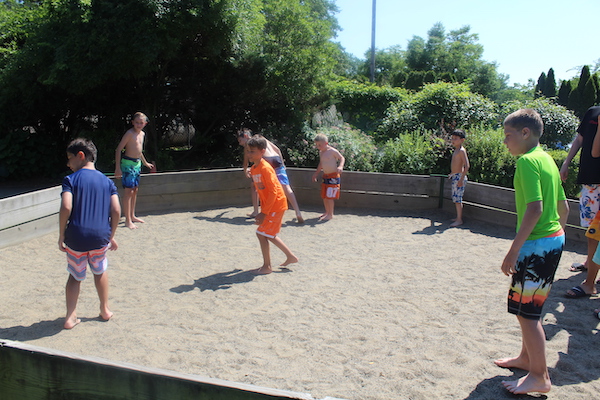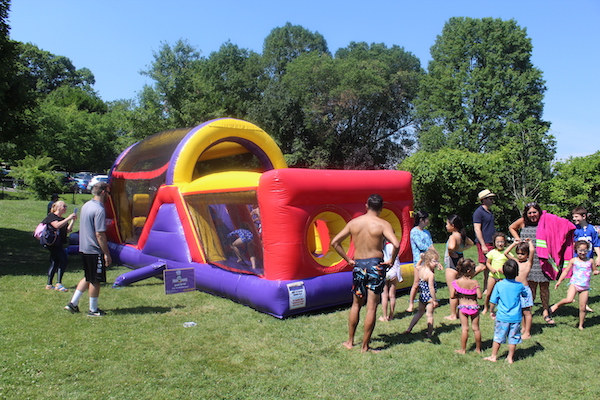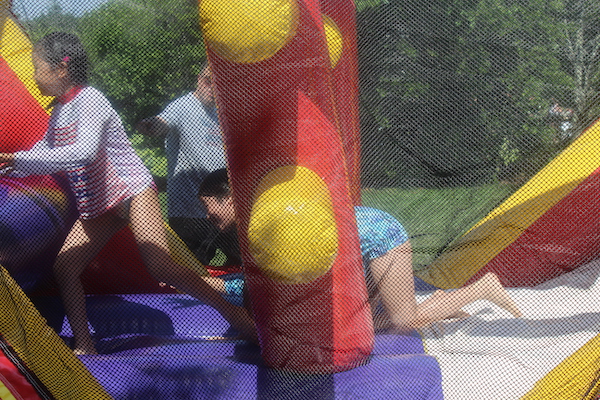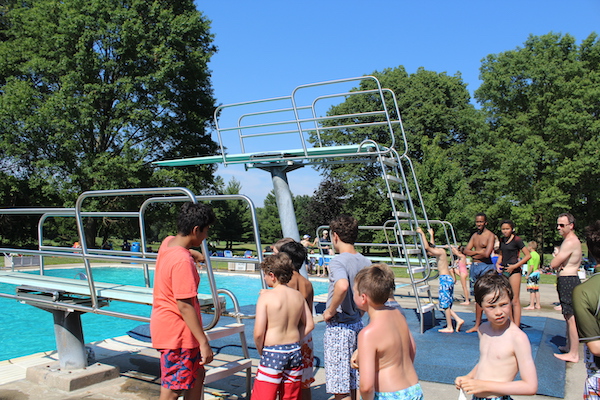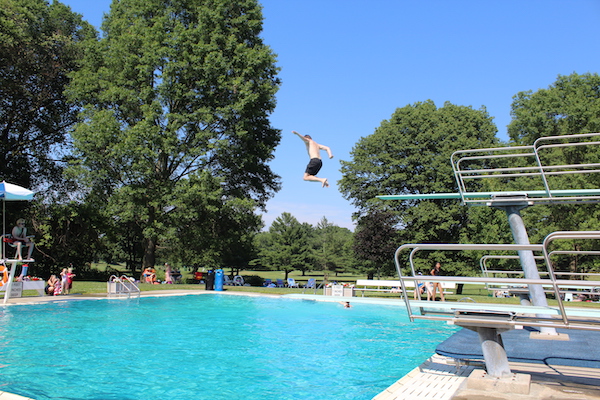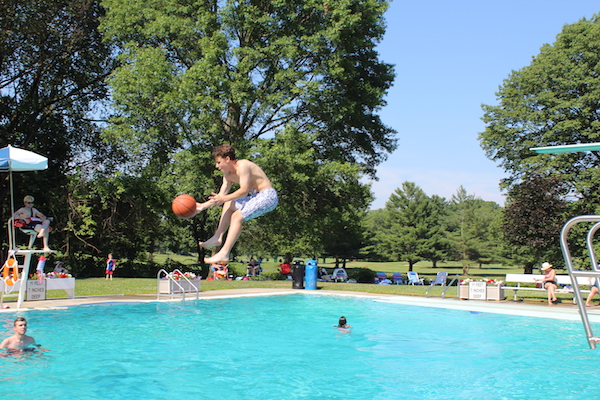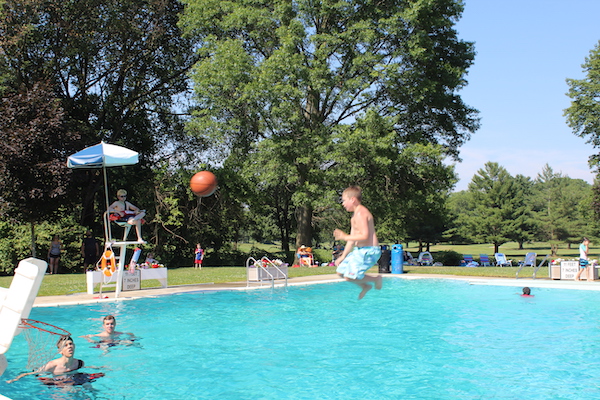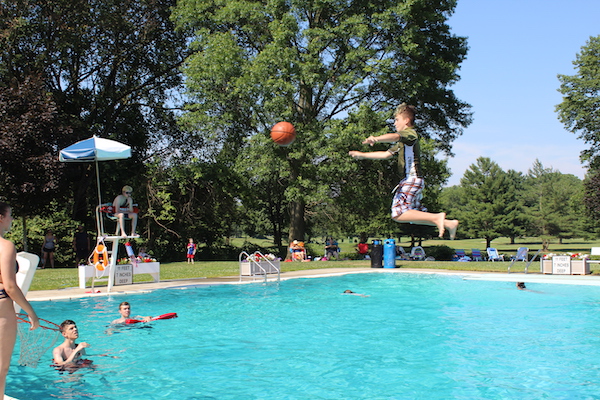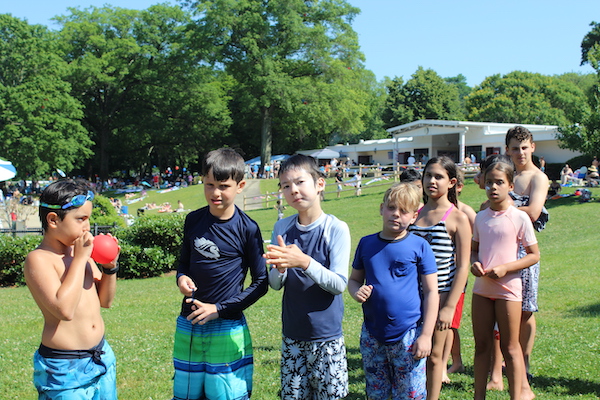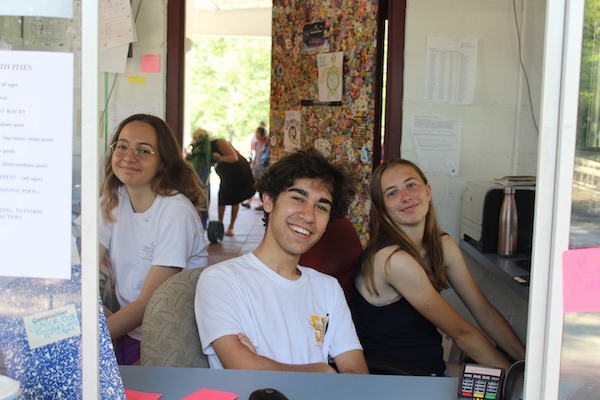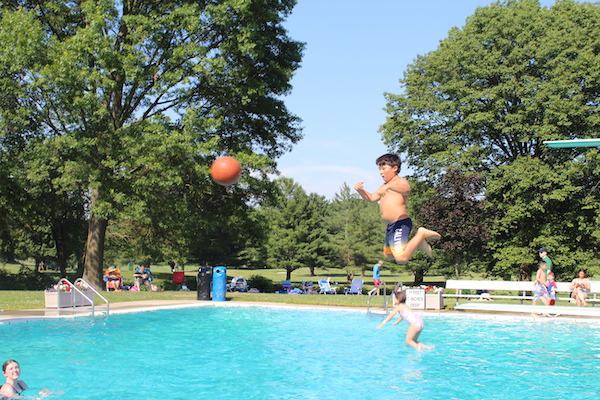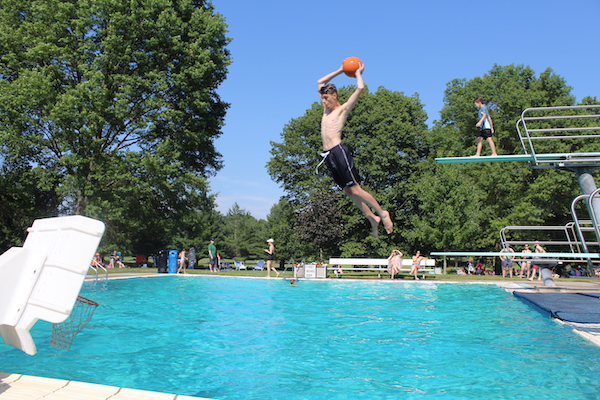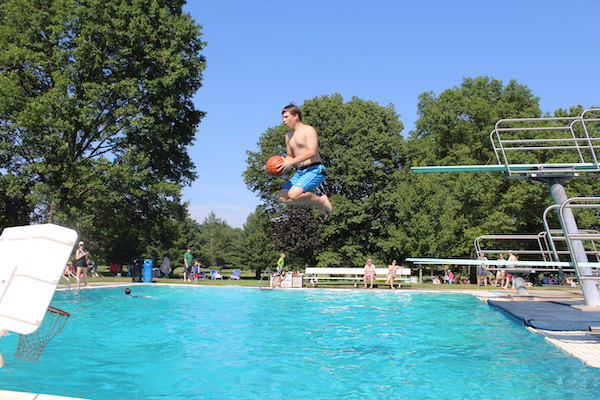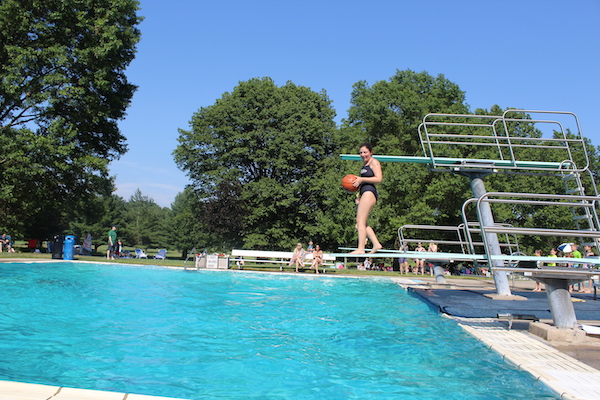Back to School Guide 2019: For Kids and Grown-ups Too
- Details
- Written by: Joanne Wallenstein
- Hits: 7335
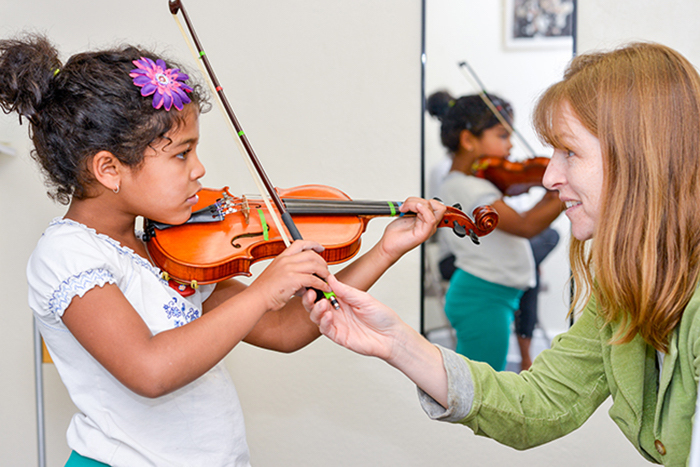 Though the streets of the village are quiet and empty this week, in just a few days families will start returning from vacation, sports practices will begin and Scarsdale will be back in full swing.
Though the streets of the village are quiet and empty this week, in just a few days families will start returning from vacation, sports practices will begin and Scarsdale will be back in full swing.
Looking ahead to fall and beyond, here is a guide to pre-schools, dance and music classes, prep schools, religious schools, sports programs and college preparatory services for local kids ages two through 18. If you have a toddler, take a look at preschool programs for enrollment for next year. Adults – be sure to peruse the Scarsdale Adult School fall and winter catalogue to take advantage of all they have to offer.
Scarsdale is a wonderful place to raise a family – and there are so many local programs available to enrich your children’s lives and yours as well.
Enrichment and After School Programs:
Hoff Barthelson Music School
Registration for fall is open at Hoff-Barthelson, Westchester's premier community music school!
At Hoff-Barthelson, students find a warm, friendly music school dedicated to the highest standards of education, performance, and community service. Students of all ages – 6 months to adult – aptitudes, and levels of interest enjoy a supportive, joyful learning environment; a focus on the whole person; exceptional teaching; and a multifaceted curriculum.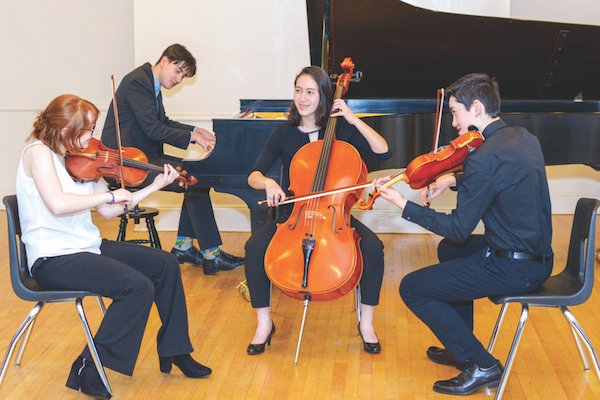 Hoff-Barthelson Music School students in performance. Photo by Steven Schnur.
Hoff-Barthelson Music School students in performance. Photo by Steven Schnur.
Once enrolled for music lessons, all students gain complimentary access to a comprehensive program that includes unlimited musicianship classes and ensembles, myriad performance opportunities, master classes with world renowned guest artists, and workshops.
The School celebrates its 75th Anniversary, with a number of new classes and program enhancements including group piano and ukulele classes; songwriting workshops; classes in improvisation, piano history and literature; “Scarsdale Singers,” a chorus for adults; classes in the Alexander Technique; Dalcroze Eurhythmics workshops for all ages; and the implementation of online resources published by the Royal Conservatory of Music to support the School’s long-established grade-level appropriate learning goals.
The school year begins Monday, September 9th. Families wishing to learn about early childhood classes for children ages 6 months through kindergarten are invited to attend an Open House on Friday, September 6, from 10 to 11:30 am, which features a demo class at 10:30 am. For more information and to register, call 914-723-1169, visit www.hbms.org, or e-mail hb@hbms.org. Hoff Barthelson, 25 School Lane, Scarsdale
JCC of Mid-Westchester
Education at the JCC of Mid-Westchester: Feeding the Minds and Bodies. Pre-school learners all benefit from the full service nursery schools, fitness and sports facilities and professional teaching staff throughout the JCC. A year round indoor pool, fitness programs, arts programs and special needs programs. ALL UNDER ONE ROOF!
 For family conveniences JCCCMW Nursery School offers early drop off late pick up available. Summer Art Center (SAC), a one of a kind program that provides a non-competitive, nurturing and flexible environment for all children with a passion for the Arts, continues throughout the year! Classes are all taught by professional artists and teachers and offers high quality instruction in Fine Arts, Dance, Theatre and Music. This year we welcome back Sandbox theatre as our resident community theatre. The Dance School provides extensive programs for pre-schoolers, teens, and adults. The Academic Center offers everything you need to prepare your kids for college entrance. One of the best things about having more than 250 programs for the whole family is that we can offer discounts to our patrons. JCCMW is open to all -- no membership required. NEW this year is a pre-K Mandarin language program in addition to Spanish immersion class! Register online, or Contact JCCMW for more information on its more than 250 programs offered throughout the year, or to schedule a tour: 914-472-3300, www.jccmw.org.
For family conveniences JCCCMW Nursery School offers early drop off late pick up available. Summer Art Center (SAC), a one of a kind program that provides a non-competitive, nurturing and flexible environment for all children with a passion for the Arts, continues throughout the year! Classes are all taught by professional artists and teachers and offers high quality instruction in Fine Arts, Dance, Theatre and Music. This year we welcome back Sandbox theatre as our resident community theatre. The Dance School provides extensive programs for pre-schoolers, teens, and adults. The Academic Center offers everything you need to prepare your kids for college entrance. One of the best things about having more than 250 programs for the whole family is that we can offer discounts to our patrons. JCCMW is open to all -- no membership required. NEW this year is a pre-K Mandarin language program in addition to Spanish immersion class! Register online, or Contact JCCMW for more information on its more than 250 programs offered throughout the year, or to schedule a tour: 914-472-3300, www.jccmw.org.
Scarsdale Ballet Studio
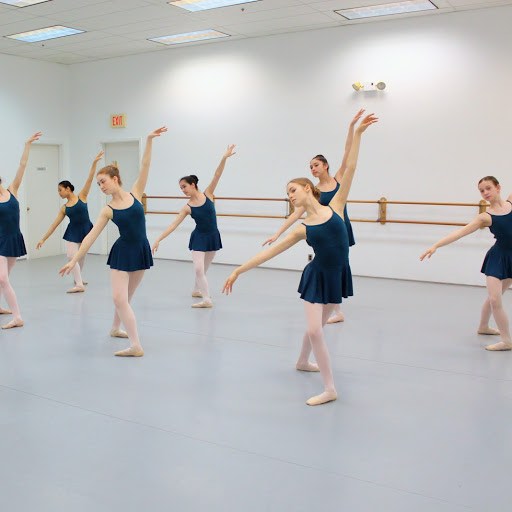 Scarsdale Ballet Studio celebrates 27 years of awesome memories and looks forward creating many more. Artistic Director Diana White, former ballerina of the NYC Ballet, says, “We share our love of ballet with students from pre-school through high school, to college, and beyond. We welcome anyone to try ballet, including children with special needs and older adults. All can enjoy the benefits of formal dance training: physical fitness, confidence, self-expression, mental focus, collaborative skills, and lasting friendships.”
Scarsdale Ballet Studio celebrates 27 years of awesome memories and looks forward creating many more. Artistic Director Diana White, former ballerina of the NYC Ballet, says, “We share our love of ballet with students from pre-school through high school, to college, and beyond. We welcome anyone to try ballet, including children with special needs and older adults. All can enjoy the benefits of formal dance training: physical fitness, confidence, self-expression, mental focus, collaborative skills, and lasting friendships.”
“We are known for our authentic curriculum, our encouraging and supportive atmosphere, and for quality performances, including The Nutcracker.” Faculty are former professional dancers of international caliber. Guest faculty include SBS alumna, star of American Ballet Theater, Skylar Brandt, and Associate Artistic Director of NYCB, Wendy Whelan. SBS students are regularly accepted to the most prestigious professional and college dance programs. They are high achievers in many professional fields besides dance, and carry their expertise and love of dance throughout life. The studio also offers ballet classes in Japanese. The spacious professional studios are located in the rear of Vernon Hills Shopping Center on Route 22. Visit scarsdaleballetstudio.com (914) 725-8754.
Steffi Nossen School of Dance
Join us at the Steffi Nossen School of Dance Open House, Saturday, September 7th. Sample classes, meet faculty and student ambassadors: plan your dance year, purchase dancewear, enjoy refreshments in our White Plains studios. During Free Week of Dance September 23 – 29 try all level and age appropriate classes. We have a class for you!
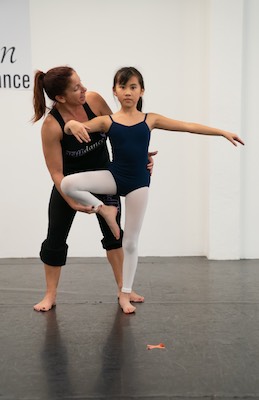 Steffi Nossen Scarsdale student Evelyn Leung with teacher Tami Mele. Credit: Ellen CraneDancers of all abilities have a home here. Through the discipline and joy of dance in a nurturing environment, dancers develop grace and fitness, build confidence and poise, and experience the creative process. We offer classes from Dancing Tots to a Pre-Professional Program for tweens and teens. In Dancing Tots for 1 – 3 year olds and parent/caregiver have a fun-filled opportunity to express themselves through movement while working on balance and coordination. Pre-schoolers choose from Creative Movement, Tap/Ballet, and an energy-filled Boy's Only! Try our Core Programs in Modern, Ballet, Jazz, Tap and Hip-Hop, a Pre-professional technique Program, and Moving Wheels and Heels a unique adaptive classes - there is dance that everyone can enjoy.
Steffi Nossen Scarsdale student Evelyn Leung with teacher Tami Mele. Credit: Ellen CraneDancers of all abilities have a home here. Through the discipline and joy of dance in a nurturing environment, dancers develop grace and fitness, build confidence and poise, and experience the creative process. We offer classes from Dancing Tots to a Pre-Professional Program for tweens and teens. In Dancing Tots for 1 – 3 year olds and parent/caregiver have a fun-filled opportunity to express themselves through movement while working on balance and coordination. Pre-schoolers choose from Creative Movement, Tap/Ballet, and an energy-filled Boy's Only! Try our Core Programs in Modern, Ballet, Jazz, Tap and Hip-Hop, a Pre-professional technique Program, and Moving Wheels and Heels a unique adaptive classes - there is dance that everyone can enjoy.
Visit our website, www.steffinossen.org or contact us at info@steffinossen.org or (914) 328-1900. Steffi Nossen School of Dance; 216 Central Avenue, White Plains.
The Music Conservatory of Westchester
The Music Conservatory of Westchester in White Plains opens its 90th anniversary year with expanded quality musical opportunities. The nonprofit community music school invites prospective students and their families to go Back to Music this fall to explore music classes for toddlers, children, teens, and adults.
First Notes early childhood classes will jumpstart your child’s development with a three-level curriculum: Bravo Babies (3-18 months), Toddler Tunes (1 ½ -2 ½ years), and Preschool Prodigies (3-4 years). Children explore musical sounds and rhythms, and learn songs from around the world in interactive classes with their parent or caregiver.
If you’re looking for an ideal first instrument for your child, the guitar is a perfect choice. At the Conservatory, beginner guitar classes (ages 4 and up) foster children’s creativity and collaborative spirit, preparing them to specialize in their favorite style of music - classical, jazz, or rock - when they reach middle school.
This fall, the Conservatory will launch MCW Prep – a unique and exciting college preparatory program for advanced high school musicians. Students will have the rare opportunity to train intensively with master musicians of the New York Philharmonic, Metropolitan Opera, Chamber Music Society of Lincoln Center, and Broadway. To schedule an audition, contact Dr. Douglas Bish, Dean of Students and Faculty: doug@musiced.org.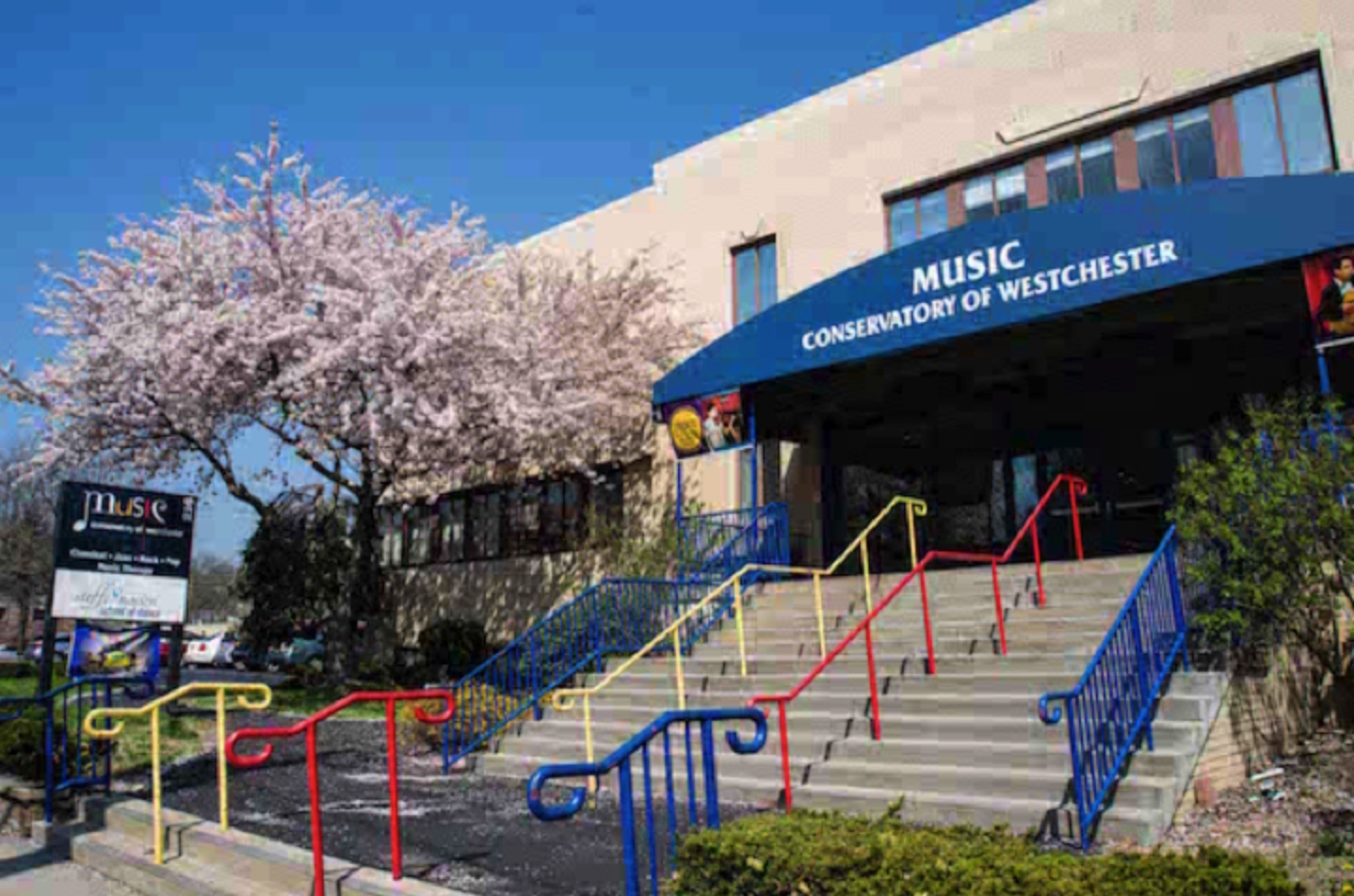
The Conservatory has also developed unique programming just for adults. In addition to private lessons, the school’s group piano and guitar classes, women’s vocal ensemble, and chamber ensembles create a fun, social atmosphere for adult music students.
Attend Open Houses and register for classes online today! Music Conservatory of Westchester, 216 Central Avenue, White Plains, NY 10606. Call 914-761-3900 or visit www.musicconservatory.org.
College Prep
Deborah Skolnik, Ivy Edge College Essay Editing
Let me help transform your child's college essay into sparkling, standout prose! Locally famous for my popular Gentle Scarsdale Satire poems, I'm also an award-winning editor and writer with more than 30 years of experience at many of America's leading magazines and newspapers. For years, I've helped local and overseas students refine their essays into attention-grabbing works with a distinctive voice, crafted to stand out in a sea of applications. My own essays have appeared in iconic publications including The New York Times and Reader's Digest. Doesn't your child deserve the best chance at being admitted to the college of his or her choice? Please contact me at deborah_skolnik@hotmail.com or 917-301-6562. Mention this ad for a special discount!
SLB Education Consultants 
SLB Education Consultants provides independent college advising services right here in Scarsdale. With 15 years of experience, the team at SLB offers its extensive expertise to guide families during this critical, exciting and often overwhelming time. SLB counsels students on all aspects of the application process, including academic and extracurricular planning, standardized test strategizing, individualized college list guidance and preparation for interviews. In addition, SLB works one-on-one with students as they complete the Common Application personal statement, as well as all supplemental writing. For more information, contact Jake Beckman at 914-713-3462 or jake@slbteam.com. You can also visit the SLB website at www.slbeducationconsultants.com.
Soundview Prepartory School
 For more than 30 years, Soundview Preparatory School's purpose has been to provide a college-preparatory education in a supportive and non-competitive environment that requires rigorous application to academics, instills respect for ethical values, and fosters self-confidence by helping each student feel recognized and valued. Soundview, an independent, coed day school for grades 6 – 12 is located on a 13 acre campus in picturesque Yorktown Heights, New York. In addition to a stellar academic program, Soundview offers a unique and outstanding Music, Art and Art Design program in their state-of-the-art Music Conservatory and Top Tier Design Studio. Soundview Preparatory school remains committed to the belief that students thrive in small classes and investing intensely in each individual student while holding them to a high standard in both academic pursuits and personal conduct. Soundview Preparatory maintains a 100% college acceptance rate and operates under a rolling admission policy. Students are accepted throughout the year based on: an interview with the Director of Admissions, prior academic record, student visit, recommendations, and a writing sample. Soundview Prep serves students from Westchester, Putnam and Rockland Counties in New York State and from Fairfield County in Connecticut, as well as from New York City. Approximately 30% of students receive some form of tuition discount.
For more than 30 years, Soundview Preparatory School's purpose has been to provide a college-preparatory education in a supportive and non-competitive environment that requires rigorous application to academics, instills respect for ethical values, and fosters self-confidence by helping each student feel recognized and valued. Soundview, an independent, coed day school for grades 6 – 12 is located on a 13 acre campus in picturesque Yorktown Heights, New York. In addition to a stellar academic program, Soundview offers a unique and outstanding Music, Art and Art Design program in their state-of-the-art Music Conservatory and Top Tier Design Studio. Soundview Preparatory school remains committed to the belief that students thrive in small classes and investing intensely in each individual student while holding them to a high standard in both academic pursuits and personal conduct. Soundview Preparatory maintains a 100% college acceptance rate and operates under a rolling admission policy. Students are accepted throughout the year based on: an interview with the Director of Admissions, prior academic record, student visit, recommendations, and a writing sample. Soundview Prep serves students from Westchester, Putnam and Rockland Counties in New York State and from Fairfield County in Connecticut, as well as from New York City. Approximately 30% of students receive some form of tuition discount.
Contact Karen S. Teich, Director of Admissions at 914-962-2789 ext. 107 or visit their website. Soundview Prep, 370 Underhill Avenue, Yorktown Heights, NY 10598
Religious Schools
Bet Am Shalom
"Torah La'am" is our engaging, progressive and creative K-12 Jewish Education Program. We bring Jewish learning to life in inspiring,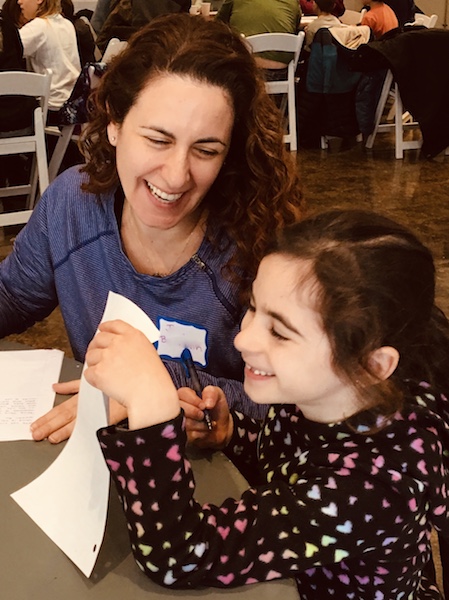 joyful ways for the whole family through art, music, intergenerational social action projects, family programs, and parenting workshops. Our children bake challah and desserts for our communal Shabbat dinners and, in grades 4-6, read Torah and lead prayers on Shabbat. We focus on building communities in which students live Jewish values by listening and valuing a variety of perspectives and helping each other grow. We provide teens with many leadership roles in our community, and a Monday night program where they are challenged to think deeply about their Jewish identity and learn from each other. To learn more or to schedule a visit, contact: Abby Reiken, Education Director, eddirector@betamshalom.org, 914-946-8851.
joyful ways for the whole family through art, music, intergenerational social action projects, family programs, and parenting workshops. Our children bake challah and desserts for our communal Shabbat dinners and, in grades 4-6, read Torah and lead prayers on Shabbat. We focus on building communities in which students live Jewish values by listening and valuing a variety of perspectives and helping each other grow. We provide teens with many leadership roles in our community, and a Monday night program where they are challenged to think deeply about their Jewish identity and learn from each other. To learn more or to schedule a visit, contact: Abby Reiken, Education Director, eddirector@betamshalom.org, 914-946-8851.
Scarsdale Synagogue Religious and Chai School for Pre-K through Grade 12
Welcome to Scarsdale Synagogue's Religious School and Chai School! Our mission is to care for and nurture our students and their families, and to cultivate a culture of growth, friendship, and Jewish community. Just the right size for your family, we offer a robust program even as we know your child's particular passions and needs.
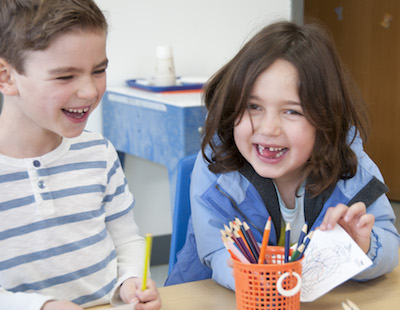 Our programs are vibrant and innovative thereby engaging your children in a meaningful way. Classes are small and individualized programs are available for students with special needs. Both teachers and students are encouraged to think outside of the box; every avenue to deeper, more exciting and fun Jewish learning is explored with joy and zeal. Our school meets on Sunday mornings (K - 6; Pre-K meets monthly) and Wednesday afternoons (Grades 4-6). And our fun and engaging Chai School (Grades 7-12) meets on Wednesday evenings. Each grade enjoys its own curricular focus as they learn about Jewish traditions and cultures, past and present. Children choose engaging electives that teach Hebrew vocabulary through sports, cooking, yoga, art and more.
Our programs are vibrant and innovative thereby engaging your children in a meaningful way. Classes are small and individualized programs are available for students with special needs. Both teachers and students are encouraged to think outside of the box; every avenue to deeper, more exciting and fun Jewish learning is explored with joy and zeal. Our school meets on Sunday mornings (K - 6; Pre-K meets monthly) and Wednesday afternoons (Grades 4-6). And our fun and engaging Chai School (Grades 7-12) meets on Wednesday evenings. Each grade enjoys its own curricular focus as they learn about Jewish traditions and cultures, past and present. Children choose engaging electives that teach Hebrew vocabulary through sports, cooking, yoga, art and more.
For more information, please contact Rabbi Glickman at rabbiglickman@sstte.org or call 914-725-5175 x 121 or visit our website. Scarsdale Synagogue is a reform Jewish community located at 2 Ogden Road, Scarsdale, NY 10583.
Sports
Maroon and White
Maroon and White is the Scarsdale parent organization supporting interscholastic athletics, physical education, and health at the high school. All Scarsdale families are welcome as members and can join through our website, www.maroonandwhite.org. We regularly raise funds through membership, from the sale of Raider merchandise and spiritwear, and from family and business ads in the M&W SHS Sports Journal. We are presently accepting ads through our website or by emailing the Journal Committee at sportsjournal@maroonandwhite.org. Ads placed by October 15, 2019 will appear in all three printings of the Journal (i.e., Fall, Winter, and Spring). Please come out and support our fall athletes. Click here to see the schedule of games and matches.
Scarsdale Youth Lacrosse
FALL REGISTRATION NOW OPEN!
Once again, Scarsdale Youth Lacrosse (SYLA) will be offering Fall Lacrosse Programs in 2019. The 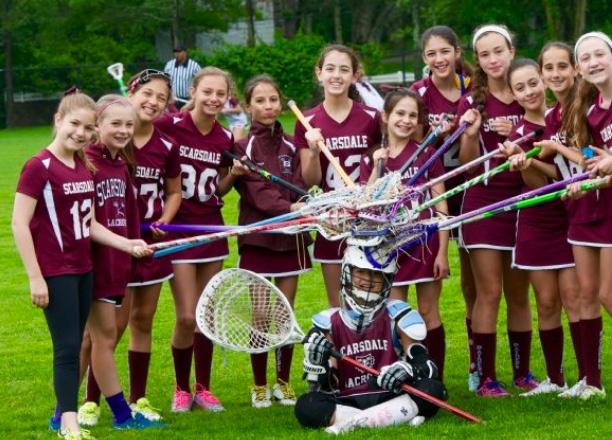 program will focus on improving skills, game IQ development, playing games against other town teams, and having fun playing lax in the beautiful fall season. These programs are offered for Boys & Girls K-8, all levels of players from beginner to advanced.
program will focus on improving skills, game IQ development, playing games against other town teams, and having fun playing lax in the beautiful fall season. These programs are offered for Boys & Girls K-8, all levels of players from beginner to advanced.
SYLA is dedicated to promoting lacrosse at the youth level for families residing in the village of Scarsdale, NY. We strive to develop strong fundamental skills and teamwork while adhering to the standards of sportsmanship, respect for all participants and a sense of fair play. Visit their website for more information and registration.
Scarsdale Youth Soccer Club
 The Scarsdale Youth Soccer Club (“SYSC”) is a non-profit organization administered by Scarsdale parents. SYSC in conjunction with our professional coaching partner, Stay-in-Town Soccer, organizes and coaches boys' and girls’ soccer teams to play in travel soccer leagues and tournaments in the Westchester and NYC area. SYSC fields travel soccer teams from U8 - U14. In general, the club fields around 40 teams each year between girls' and boys' teams. These teams are registered in the Westchester Youth Soccer League (“WYSL"). The WYSL is a league that is part of both the US Club Soccer and the United States Youth Soccer Association ("USYSA"). More information about SYSC can be found at www.scarsdalesoccer.net.
The Scarsdale Youth Soccer Club (“SYSC”) is a non-profit organization administered by Scarsdale parents. SYSC in conjunction with our professional coaching partner, Stay-in-Town Soccer, organizes and coaches boys' and girls’ soccer teams to play in travel soccer leagues and tournaments in the Westchester and NYC area. SYSC fields travel soccer teams from U8 - U14. In general, the club fields around 40 teams each year between girls' and boys' teams. These teams are registered in the Westchester Youth Soccer League (“WYSL"). The WYSL is a league that is part of both the US Club Soccer and the United States Youth Soccer Association ("USYSA"). More information about SYSC can be found at www.scarsdalesoccer.net.
Adult Learning
Scarsdale Adult School
Scarsdale Adult School is an award-winning, continuing education program that provides enriching  curriculum for lifelong learners. Established in 1938, SAS is an independent, not-for-profit organization charted by the New York State Board of Regents. Nourishing the mind, body, and soul, SAS boasts a wide array of courses in history, culture, current events, art appreciation and literature as well as writing, walking tours, photography, personal finance, arts and crafts, fitness, card and board games, food and beverage, hobbies and edutainment, health/wellness and self-improvement classes. Class locations, days, and times vary by course, but all are housed venues in or convenient to Scarsdale. Classes are open to all, regardless of residency, and courses fill on a first-come/first-served basis. View course offerings at ScarsdaleAdultSchool.org and call 914-723-2325.
curriculum for lifelong learners. Established in 1938, SAS is an independent, not-for-profit organization charted by the New York State Board of Regents. Nourishing the mind, body, and soul, SAS boasts a wide array of courses in history, culture, current events, art appreciation and literature as well as writing, walking tours, photography, personal finance, arts and crafts, fitness, card and board games, food and beverage, hobbies and edutainment, health/wellness and self-improvement classes. Class locations, days, and times vary by course, but all are housed venues in or convenient to Scarsdale. Classes are open to all, regardless of residency, and courses fill on a first-come/first-served basis. View course offerings at ScarsdaleAdultSchool.org and call 914-723-2325.
Preschools
Congregation Kol Ami
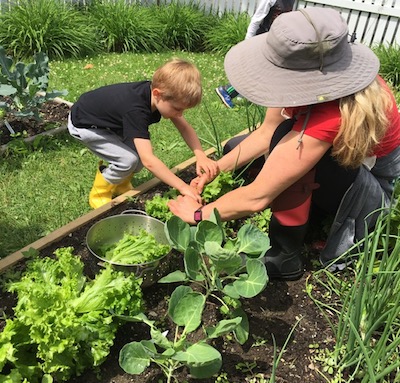 The Early Childhood Program at Congregation Kol Ami is dedicated to providing a comprehensive and developmentally appropriate curriculum teaching and modeling Jewish values. We believe that children learn best through experiential play and provide for these rich experiences within warm, accepting, and nurturing surroundings. All of our Head Teachers have Masters Degrees in Early Childhood or N-6 or related educational fields. We offer a wide range of programs for children (from 1 to 5 years old) and their families. Our A Step Ahead! program for Fall 5 year olds provides full day Pre-K learning. For more information, contact: Nan Blank, ECP Director at nanblank@nykolami.org or call her 914-949-4717 x107.
The Early Childhood Program at Congregation Kol Ami is dedicated to providing a comprehensive and developmentally appropriate curriculum teaching and modeling Jewish values. We believe that children learn best through experiential play and provide for these rich experiences within warm, accepting, and nurturing surroundings. All of our Head Teachers have Masters Degrees in Early Childhood or N-6 or related educational fields. We offer a wide range of programs for children (from 1 to 5 years old) and their families. Our A Step Ahead! program for Fall 5 year olds provides full day Pre-K learning. For more information, contact: Nan Blank, ECP Director at nanblank@nykolami.org or call her 914-949-4717 x107.
Mazel Tots
Mazel Tots® at Scarsdale Synagogue provides a warm and stimulating environment, which encourages children's curiosity and helps them to grow socially, emotionally, physically and intellectually. Our warm and nurturing staff will guide the children through a curriculum filled with a variety of child-centered and developmentally appropriate activities that are safe, fun and friendly. The children's spiritual growth will be enriched by the study of Jewish holidays, traditions and family values. We also offer a group of special activities such as sports and games, music, creative movement, sign language, nature, yoga, karate, science, art atelier, dance and more! We have two beautiful playgrounds and gardens, plus a fully equipped indoor play space featuring ride-on toys, gym equipment, giant blocks and stepping stones just to name a few! Our Early Childhood Program serves children from 18 months through those Kindergarten-bound! We also have afternoon Enrichment Programs which extends the fun and the length of the day! For more information please contact Jody Glassman, Early Childhood Program Director at 914-723-3001 or mazeltots@sstte.org. You can also visit our website. Scarsdale Synagogue is located at 2 Ogden Road, Scarsdale, NY 10583. 914.725.5175.
Early Childhood Center at Westchester Reform Temple At WRT’s Early Childhood Center (ECC), we strive to create an environment that fosters social, emotional, physical and cognitive growth as well as creativity, and confidence. Our warm, nurturing teachers provide children with the tools they need to communicate with each other and with the world around them. Children learn and practice Jewish values and become confident members of our Jewish community. Our families are partners in the work that we do and are invited to participate in the learning process. We emphasize STEAM concepts through hands-on science, technology, engineering, art, and math investigation which encourage young learners to achieve developmental goals. Through inquiry and play-based instruction, we provide students with an opportunity to learn language arts, math and handwriting readiness skills that prepare them for Kindergarten and beyond. We facilitate learning through small groups and foster relationships between our children and their teachers, specialists and our clergy. Lunch and afternoon/ enrichment classes are available for older children. For Toddlers between the ages of one and two we offer Mommy and Me Temple Tots classes, facilitated by our school Social Worker and ECC staff as well as a Toddler Time class facilitated by experienced ECC teachers. Any loved one is welcome to attend this class with their child. Both classes are wonderful opportunities for making friends for adults as well as children.
At WRT’s Early Childhood Center (ECC), we strive to create an environment that fosters social, emotional, physical and cognitive growth as well as creativity, and confidence. Our warm, nurturing teachers provide children with the tools they need to communicate with each other and with the world around them. Children learn and practice Jewish values and become confident members of our Jewish community. Our families are partners in the work that we do and are invited to participate in the learning process. We emphasize STEAM concepts through hands-on science, technology, engineering, art, and math investigation which encourage young learners to achieve developmental goals. Through inquiry and play-based instruction, we provide students with an opportunity to learn language arts, math and handwriting readiness skills that prepare them for Kindergarten and beyond. We facilitate learning through small groups and foster relationships between our children and their teachers, specialists and our clergy. Lunch and afternoon/ enrichment classes are available for older children. For Toddlers between the ages of one and two we offer Mommy and Me Temple Tots classes, facilitated by our school Social Worker and ECC staff as well as a Toddler Time class facilitated by experienced ECC teachers. Any loved one is welcome to attend this class with their child. Both classes are wonderful opportunities for making friends for adults as well as children.
End of the year Mini Session and Summer Play Place camp offered.
Registration for the 2020-2021 school year begins in November. Currently a few spaces are available in our threes classes as well as the Toddler Time class for the coming school year. For information, and to schedule a visit to our pre-school, please contact ECC Director Sue.tolchin@wrtemple.org or call us at 914 723-5493.
Off to College? Five Unexpected Items to Bring!
- Details
- Written by: Jamie Robelen
- Hits: 8026
It’s almost August, so you know what that means- college is right around the corner! Kids have already started packing, and first-year students have started buying the dorm essentials. We all know what the dorm basics are: sheets, towels, extension cords, and more. But don’t you want your dorm room to have a little flair? Here are five things that I think are the un-official college essentials for a cool dorm room.
 String Lights
String Lights
String lights are a great way to brighten up your room while still keeping it cute! Hang them around your headboard, on your wall, or on the ceiling around the perimeter of your room. For an extra touch, hang photos off of them! You can also look for different shapes, colors, and sizes. Buy some here.
 Washi Tape
Washi Tape
Looking for fun, temporary room décor? Washi tape is your best friend. A type of colorful masking tape, Washi tape is perfect for your dorm room because it doesn’t leave any sticky residue on your walls. Use it for pictures, posters, or even just on its own to make fun designs. It comes in so many patterns and colors, you’re sure to find some to fit your room’s theme or your school’s colors. Buy some here.
 Custom Décor
Custom Décor
Lots of teens are making money these days running custom college item businesses on Instagram. You can purchase decorations or apparel for almost any college. One popular item is a custom-drawn canvas. Each canvas has symbols and motifs of whatever you want, from your school to your favorite tv show. It can be a little glimpse into your personality. Since everything is custom made, the possibilities are endless- just poke around on Instagram until you find the perfect thing for your dorm. Buy some here.
 Tapestries
Tapestries
A tapestry is one of the easiest ways to transform a boring dorm wall into something cute. There are tons of patterns out there, and you can always switch it up if you decide it’s not your speed. It can also be a great background for pictures in your dorm. Make sure to check with your college beforehand, though. Some schools don’t allow tapestries, since they can be a fire hazard. Buy some here.
 Salt Lamps
Salt Lamps
One thing you’ll have to leave behind when you go off to college is your candle collection. Still looking for a relaxing light source with the ambiance of a candle? Try a crystal salt lamp! The look of is gorgeous and mellow. Also, there are said to be health benefits of being around them. Studies claim that these lamps can raise energy, improve sleep, and promote concentration and relaxation. Find one for your desk, and sit back and let it relax you! Buy some here.
For some more great dorm supplies, check these websites out:
Pottery Barn Teen- Dorm
Dormify
Bed Bath & Beyond- Dorm
Target- Dorm
Survey Results: Readers Favor Proposal to Light Up Butler Field
- Details
- Written by: Joanne Wallenstein
- Hits: 4936
 Lights or no lights … that is the question. We conducted a reader survey of views on the installation of lights at Butler Field at Scarsdale High School and we thank the 341 respondents for participating.
Lights or no lights … that is the question. We conducted a reader survey of views on the installation of lights at Butler Field at Scarsdale High School and we thank the 341 respondents for participating.
The poll remains open, but as of Sunday July 14, the poll shows that 78.5% of respondents favor the proposal.
Here is an analysis of the data:
Yes or no? Among the 341 responses received, 78.5% favor the proposal.
Male or female? The respondents were equally mixed among men and women.
Kids in school? 78.0% of respondents reported that they currently have children attending the schools.
Asked where the lived, here is what we learned:
Edgewood 19.0%
Fox Meadow 35.4%
Greenacres 18.4%
Heathcote 15.5%
Quaker Ridge 11.1%
A few interesting statistics emerged from our analysis.
Among those who said “Yes” to the proposal, here is the approval rate by neighborhood:
Edgewood 89.2% yes
Fox Meadow 71.9% yes
Greenacres 87.3% yes
Heathcote 75.4% yes
Quaker Ridge 73.6% yes
The proposal received bigger support among those with children in the schools than empty nesters.
84.2% of those with children in the school favor the lights
59.4% of empty nesters said “YES”
Men favored the proposal more strongly than women:
82.3% of men support the proposal
75.5% of women support the proposal
The proposal now stands before the Scarsdale Village Planning Board who will meet on Wednesday July 31 to review the plans in light of Village zoning code.
Keep in mind that this survey does not represent the views of all residents – it is only an indication of the opinions of those who chose to respond.
Thanks to those who participated. If you still wish to vote, click here: And for a summary of the pros and cons read our article here.
If you have comments on the plan, please enter them in the comments section below.
Fourth of July Fun at the Scarsdale Pool
- Details
- Written by: Jamie Robelen
- Hits: 4713
 Patrons flocked to the Scarsdale Municipal Pool for a full day of fun and festivities on the Fourth of July. From 12 to 5, the pool complex held a carnival for all and also different competitions and activities for the kids throughout the day. Included in the activities were parent-child relay races, kickboard races, and the penny hunt in the intermediate pool. By the basketball court and gaga pit, there was a blowup obstacle course for kids to play in. There was also a face painting station run by the lifeguards, for anyone to get a fun design. Strolling around the complex were Uncle Sam himself and Chase from the show “Paw Patrol”. On a beautiful and hot day, the carnival was perfect for families and kids to enjoy themselves.
Patrons flocked to the Scarsdale Municipal Pool for a full day of fun and festivities on the Fourth of July. From 12 to 5, the pool complex held a carnival for all and also different competitions and activities for the kids throughout the day. Included in the activities were parent-child relay races, kickboard races, and the penny hunt in the intermediate pool. By the basketball court and gaga pit, there was a blowup obstacle course for kids to play in. There was also a face painting station run by the lifeguards, for anyone to get a fun design. Strolling around the complex were Uncle Sam himself and Chase from the show “Paw Patrol”. On a beautiful and hot day, the carnival was perfect for families and kids to enjoy themselves.
Scarsdale Little League Super Saturday
- Details
- Written by: Joanne Wallenstein
- Hits: 5719
 Pacific Division Blue RocksA fun-filled Super Saturday of activities and games was held on June 15 at Crossway fields by Scarsdale Little League. The day featured championship games in three divisions: The Raptors won the Atlantic Division (mostly fifth and sixth graders), the Blue Rocks won the Pacific Division (mostly fourth graders), and the Lake Monsters won the Third Grade Division. Additionally, Zane Kohn won the Scoop Shop Home Run Derby, before joining select Atlantic Division players in an All Star Game. The day concluded with the SLL Board winning a close softball game against the SLL coaches.
Pacific Division Blue RocksA fun-filled Super Saturday of activities and games was held on June 15 at Crossway fields by Scarsdale Little League. The day featured championship games in three divisions: The Raptors won the Atlantic Division (mostly fifth and sixth graders), the Blue Rocks won the Pacific Division (mostly fourth graders), and the Lake Monsters won the Third Grade Division. Additionally, Zane Kohn won the Scoop Shop Home Run Derby, before joining select Atlantic Division players in an All Star Game. The day concluded with the SLL Board winning a close softball game against the SLL coaches.

Super Saturday also featured a video game truck, petting zoo, bouncy castle, batting cages, Atlantic and Pacific Division third place games, and a variety of food options. Sixth grader Annalise Corey kicked off the festivities singing the national anthem before the Atlantic Division championship and singing it again before the Pacific Division championship. Third Grade Champions: Lake Monsters
Third Grade Champions: Lake Monsters
